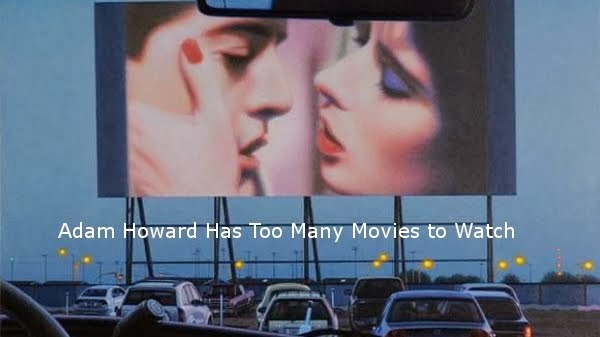 |
| Return of the Jedi |
But the thing about the upcoming sequel that is both exciting and nerve-wracking, is that there is no official direction the series is SUPPOSED to go.
George Lucas, as far as I know, has never spoken in great depth about where he imagined the series would go (or if it could) from here. The prequels were always at a disadvantage because most of the audience knew where they were inevitably headed.
They were robbed of a certain level of tension from the get-go because we were essentially waiting for Anakin to become Darth Vader.
The sequels are a total blank slate. That said, watching Return of the Jedi not only got me amped but it also raised a lot of questions and ideas for me. And that does include: Why does no one talk about the fact that the Emperor gets sexually turned on by the dark side?
In all seriousness, I would love to see Leia's maturation with the force explored in the new film. I am under no illusion that Carrie Fisher will dominate the narrative of The Force Awakens, but I would like to see her with the powers of the force at her disposal.
One of the coolest narrative threads that was always somewhat in the background in the original films, was Leia's growing awareness of her own abilities. By The Empire Strikes Back, she was already feeling the feels and sensing Luke from miles away. Her intuitive powers come to the forefront even more in Return of the Jedi, although I've never understood how she could "remember" her mother if we are to believe her mother died during childbirth. Thirty years later, Leia would presumably be much more advanced and adept with the force.. And perhaps equipped with her own lightsaber.
The empire also appears to be unfinished business. Although -- based on the original, unaltered films -- there appears to be widespread celebration over the destruction of the Death Star by Lando Calrissian and company, but it's not as if the entire empire has been wiped off the face of the earth.
Clearly, The Force Awakens indicates a more resurgent empire. But what I am curious about is whether the new leadership has learned from their predecessors' mistakes (no more Death Stars perhaps?) and has something or someone supplanted the Emperor in terms of supreme leadership.
Much has also been made about the fate of Luke Skywalker. J.J. Abrams has minimized his presence on the poster and in the trailer for The Force Awakens. He is listed prominently in the credits, so one would expect that his role amounts to more than just a cameo. Some have speculated that he has become a villain, a distinct possibility, but one I would consider a betrayal to everything that the original series established about his character.
My suspicion is that Skywalker did something that distanced him from the others. If Luke had a predominant flaw throughout the series, it's that he always acted very impetuously.
He was roughed up by sand people, lost his hand and eventually was captured by Jabba the Hut all because he wasn't listening or paying attention. In fact, his grand plan to "rescue" Han Solo from Jabba the Hut consists of all the heroes being captured so they can ... um ... escape?
Luke's tendency to always act first and ask questions later, never goes away. Sure, he grows up over the three movies, but more so in terms of understanding who he is in relation to his father. But he isn't humbled by the experience in any determinable way. I could see the at some point in the 30 years since Return of the Jedi, he might have crossed another line, but I doubt he would full on embrace the dark side.
Obviously, like so many fans I am simply nerding out. And in a few weeks I am sure I will be brought back down to earth. No movie could ever live up the the level of hype surrounding The Force Awakens. I just hope that it doesn't ignore some of the groundwork Return of the Jedi provides.



















